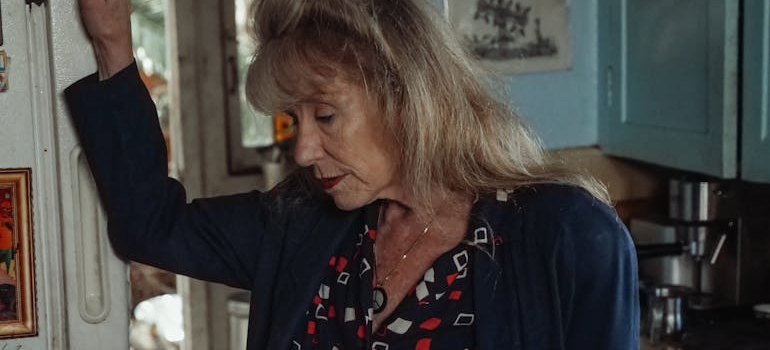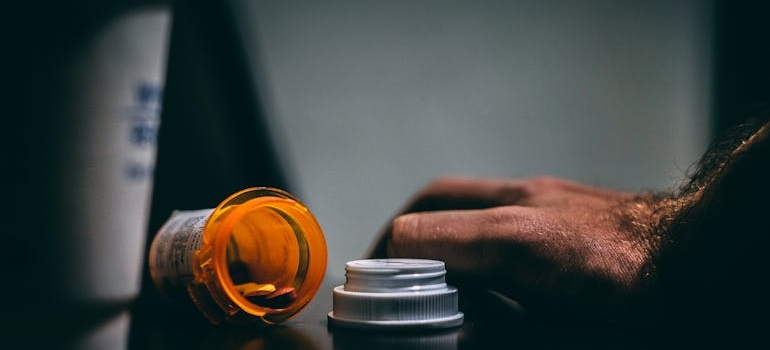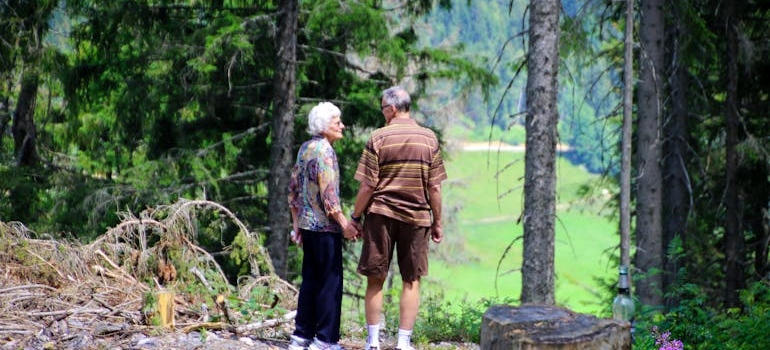Figuring out how to protect a grandchild from a drug-addicted parent is a difficult and emotional challenge. You may feel overwhelmed, unsure of what to do, and worried about the child’s future. Knowing where to start can make all the difference. We want to help you take action, provide support, and create a safer environment for your grandchild. From recognizing warning signs to exploring legal options, every step aims to protect their well-being. Harmony Ridge Recovery Center WV can be a valuable resource, offering expertise and solutions for families facing addiction. You’re not alone in this journey—there are ways to safeguard your grandchild while navigating a complex situation. Let’s focus on practical steps that truly make an impact.
How to Spot the Signs of a Parent’s Drug Use
The first step in protecting a grandchild from a drug-addicted parent is recognizing the warning signs. Identifying physical, behavioral, and environmental changes can help you understand if substance use is an issue. Knowing these signs allows you to take action sooner, creating a safer and more stable environment for your grandchild. We’ll cover key indicators to watch for and how to address concerns effectively. Let’s explore how to spot the signs of a parent’s drug use.

Physical and Behavioral Changes to Look For
Spotting signs of drug use often begins with noticing physical and behavioral changes. If you observe these changes, take them seriously. Addressing concerns early can protect the child and open the door to recovery for the parent. Key indicators include:
- Physical appearance: Rapid weight loss, bloodshot eyes, or frequent nosebleeds may signal substance use.
- Hygiene: Poor grooming or neglect of personal cleanliness can be a red flag.
- Mood swings: Sudden irritability, anger, or emotional outbursts may indicate deeper struggles.
- Energy levels: Extreme fatigue or hyperactivity can also suggest substance abuse.
Impact on Parenting and Household Stability
Addiction affects how a parent manages daily responsibilities, often leading to instability. Neglecting meals, missing school events, or failing to maintain routines can harm a child’s sense of security. Financial struggles from addiction may lead to unpaid bills, loss of utilities, or lack of basic necessities. The home may feel unpredictable or unsafe, causing emotional distress for the child. These disruptions highlight the need to step in and provide stability, whether through temporary care, legal action, or seeking professional help.
Clues in the Home Environment
A home impacted by addiction may show clear signs of trouble. Items like needles, empty pill bottles, or unusual smells can be warning signs. Frequent visitors at odd hours or unexplained damage to property may indicate drug activity. A lack of basic hygiene, spoiled food, or clutter suggests neglect. These environmental clues not only signal a problem but also highlight the need to act quickly. Removing the child from unsafe conditions and involving authorities, if necessary, can protect their safety and well-being.

Immediate Actions to Keep a Grandchild Safe
When learning how to protect a grandchild from a drug-addicted parent, taking immediate action is essential. Here are steps to create a safe environment:
- Secure a safe space by removing the child from harmful situations and ensure they are in a stable, loving environment.
- Contact authorities if needed. If the child is in danger, reach out to local child protection services or law enforcement immediately.
- Seek legal guidance and consult a family attorney to understand your rights and explore custody or guardianship options.
- Provide emotional support by reassuring the child they are safe and loved while maintaining open communication.
- Encourage therapy and try to introduce individual therapy for addiction to address the parent’s issues while prioritizing the child’s emotional well-being.
How to Handle Interactions with the Addicted Parent
Interacting with an addicted parent can be emotional and difficult. Setting clear boundaries is essential to protect yourself and your grandchild while still keeping the lines of communication open. Be firm but empathetic, letting them know their actions have consequences but that help is available. Encourage them to consider psychotherapy for addiction, which can provide tools to manage their struggles and work toward recovery.
Avoid confrontations when they are under the influence, as this can escalate situations and create more harm. Focus conversations on the child’s well-being and express your willingness to support positive changes. Balancing firmness with compassion shows you care, even as you prioritize the child’s safety. These interactions may be challenging, but they are crucial steps toward protecting the family and fostering healthier relationships.

The Ripple Effects of Addiction on Families
Addiction doesn’t just affect the person struggling with it—it impacts the entire family. Relationships become strained, trust is broken, and the home environment can feel unstable. For grandparents wondering how to protect a grandchild from a drug-addicted parent, these challenges can feel overwhelming. Children often face confusion, fear, and emotional distress, making their safety and well-being a top priority.
Treat addiction as a disease, not a moral failure, to approach the situation with empathy and focus on solutions. Understanding the underlying issues can help create a plan that prioritizes the child while encouraging the parent to seek help. Families often benefit from therapy and open communication, which can help rebuild trust and provide support during a challenging time. Recognizing these effects is the first step toward healing for everyone involved.
Helping a Grandchild Cope with an Addicted Parent
Helping a grandchild cope with an addicted parent requires patience, understanding, and consistent support. Children often feel confused, scared, or even guilty about their parent’s behavior. Reassure them it’s not their fault and that they are loved. Open and honest communication helps them process their emotions in a safe space.
Offer age-appropriate explanations about addiction, emphasizing that the parent’s struggles do not reflect their love for the child. Activities like drawing or writing can help children express feelings they may not have the words for yet. You are a key part of how to protect a grandchild from a drug-addicted parent, providing the stability they need. Professional counseling can also give them tools to handle their emotions and build resilience in this challenging situation. Your care makes a lasting difference.
What Grandparents Can Do Legally to Protect a Grandchild
Knowing how to protect a grandchild from a drug-addicted parent often means taking legal steps. Here are some actions you can consider:
- Seek custody or guardianship: Legal custody allows you to make decisions about the child’s education, healthcare, and overall welfare.
- File for emergency custody: If the child is in immediate danger, you can request temporary custody to ensure their safety.
- Explore restraining orders: If the parent’s behavior poses a direct threat, a restraining order can help protect the child.
- Consult with a family lawyer: Professional legal guidance can clarify your rights and options while helping you navigate the legal system.
- Work with child protective services: Reporting unsafe conditions can trigger investigations and support from social workers.

How to Recognize the Need for Professional Support
Recognizing when professional support is needed can be critical for protecting your grandchild and addressing the challenges of a parent’s addiction. If the child shows signs of extreme anxiety, withdrawal, or struggles in school, it may be time to involve a counselor. For the parent, continuous substance use despite consequences, mood swings, or neglecting responsibilities are strong indicators that help is necessary.
Seeking professional guidance can provide stability and the tools to manage these situations effectively. Therapists, social workers, or addiction specialists offer targeted approaches that support the child’s well-being and encourage the parent to seek recovery. Addressing these issues early can make a lasting difference. Next, we’re going to talk about a few of the options you have to support this process.
Exploring Rehab and Treatment Programs
Exploring rehab and treatment programs is a critical step in tackling addiction. If you or someone you love is struggling with benzo addiction, understanding the options available can make a significant difference. These programs are designed to offer structured support and a path to recovery. They combine medical care, counseling, and sometimes peer support to help manage withdrawal symptoms and address the underlying issues of addiction.
For benzo addiction treatment, specifically, programs often include a gradual tapering process supervised by medical professionals to safely reduce dependency. They also provide therapy sessions to teach coping strategies and prevent relapse. Choosing the right program can seem daunting, but it’s about finding a supportive environment that aligns with the individual’s needs, fostering a sustainable recovery journey.
The Role of Therapy in Recovery
Therapy plays a crucial role in recovery, especially for overcoming substance use disorders. Cognitive behavioral therapy for substance use disorders focuses on identifying and changing negative thought patterns. It helps individuals understand the triggers that lead to substance abuse and teaches them how to replace harmful behaviors with positive alternatives. This type of therapy is practical, structured, and often short-term, aiming to produce quick results that empower individuals to take control of their lives.

On the other hand, dialectical behavior therapy for addiction involves learning to manage painful emotions and decrease conflict in relationships. It emphasizes balancing acceptance and change, helping individuals cultivate a life worth living even amidst challenges. This approach is particularly effective for those who experience intense emotions and have shown resilience in many people struggling with addiction.
Considering Holistic Approaches to Healing
When tackling addiction, holistic therapy offers a comprehensive approach that focuses on healing the whole person, not just the addiction. By integrating various techniques, holistic therapy for addiction aims to restore balance in all areas of life. Here are some effective approaches:
- Acupuncture is used to reduce cravings and ease withdrawal symptoms, promoting physical healing.
- Yoga and meditation can help manage stress and improve mental clarity, fostering emotional stability.
- Nutritional counseling improves overall health and supports the body during recovery.
- Art and music therapy offer ways to express feelings and process emotions in a therapeutic setting.
The Importance of Self-Care for Grandparents
Caring for a grandchild in the midst of a parent’s addiction can be emotionally and physically draining. Grandparents often focus entirely on the child’s well-being, unintentionally neglecting their own needs. However, prioritizing your health is crucial to staying strong for your grandchild. Taking breaks, even small ones, can help recharge your energy. Support groups are a valuable resource, offering encouragement and advice from others facing similar challenges.
Make time for activities that bring you joy and relaxation, such as walking, reading, or practicing mindfulness. Staying connected with friends or community members can also provide emotional relief. Remember, self-care isn’t selfish—it’s essential for maintaining your ability to provide stability and love. Taking care of yourself allows you to be the best possible support for your grandchild during tough times.

Where Grandparents Can Find Support and Guidance
Finding the right support and guidance is key when you’re working on how to protect a grandchild from a drug-addicted parent. Here’s where you can turn:
- Local community centers: They often host support groups where you can meet others facing similar challenges.
- Family services: Many cities offer programs through government or non-profit organizations that provide counseling and legal advice.
- Online forums: Websites like GRANDcares or DailyStrength offer online communities for grandparents raising grandchildren.
- Legal aid services: They can guide you through the process of obtaining custody if necessary.
Moving Forward: Protecting Your Grandchild’s Future
Stepping in to protect a grandchild from a drug-addicted parent is a brave and necessary action. Your efforts can significantly influence their future and well-being. With the strategies and resources discussed, you have tools to intervene effectively. It’s okay to seek help, and it’s important to act when a child’s safety is at risk. This journey may be tough, but you are not alone. By staying informed and proactive, you’re taking crucial steps on how to protect a grandchild from a drug-addicted parent, ensuring they have the chance for a happier, healthier life.



